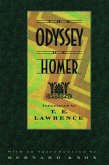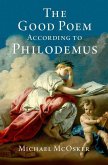In AD 8 Ovid's brilliant career was abruptly blasted when the Emperor Augustus banished him, for reasons never satisfactorily explained, to Tomis (Constanta) on the Black Sea. The five books of Tristia (Sorrows) express his reaction to this savage and, as he clearly regarded it, unjust sentence. Their title belies them. Though their ostensible theme is the misery and loneliness of exile, their real message, if they are read with the care they deserve, is one of affirmation. Both directly and, as befitted the Roman Callimachus, allusively, Ovid repeatedly asserts, often with a wit and irony that borders on defiance, his conviction of the injustice of his sentence and of the pre-eminence of the eternal values of poetry over the ephemeral dictates of an earthly power. These elegies are throughout informed by Ovid's awareness of a continuing pride in his poetic identity and mission. In technical skill and inventiveness, they rank with the Art of Love or the Fasti. This is poetry as accomplished as anything he had written in happier days and demands no less critical respect. For this new translation of Ovid's poems, all of which are in elegiacs, Alan Melville has used the same system of rhyming stanzas that he evolved so successfully for Ovid's Love Poems. Here again he has reproduced the virtuosity, elegance, and wit of the original, and presents a collection of poems in which the reader will find continual interest and pleasure.
Hinweis: Dieser Artikel kann nur an eine deutsche Lieferadresse ausgeliefert werden.
Hinweis: Dieser Artikel kann nur an eine deutsche Lieferadresse ausgeliefert werden.








